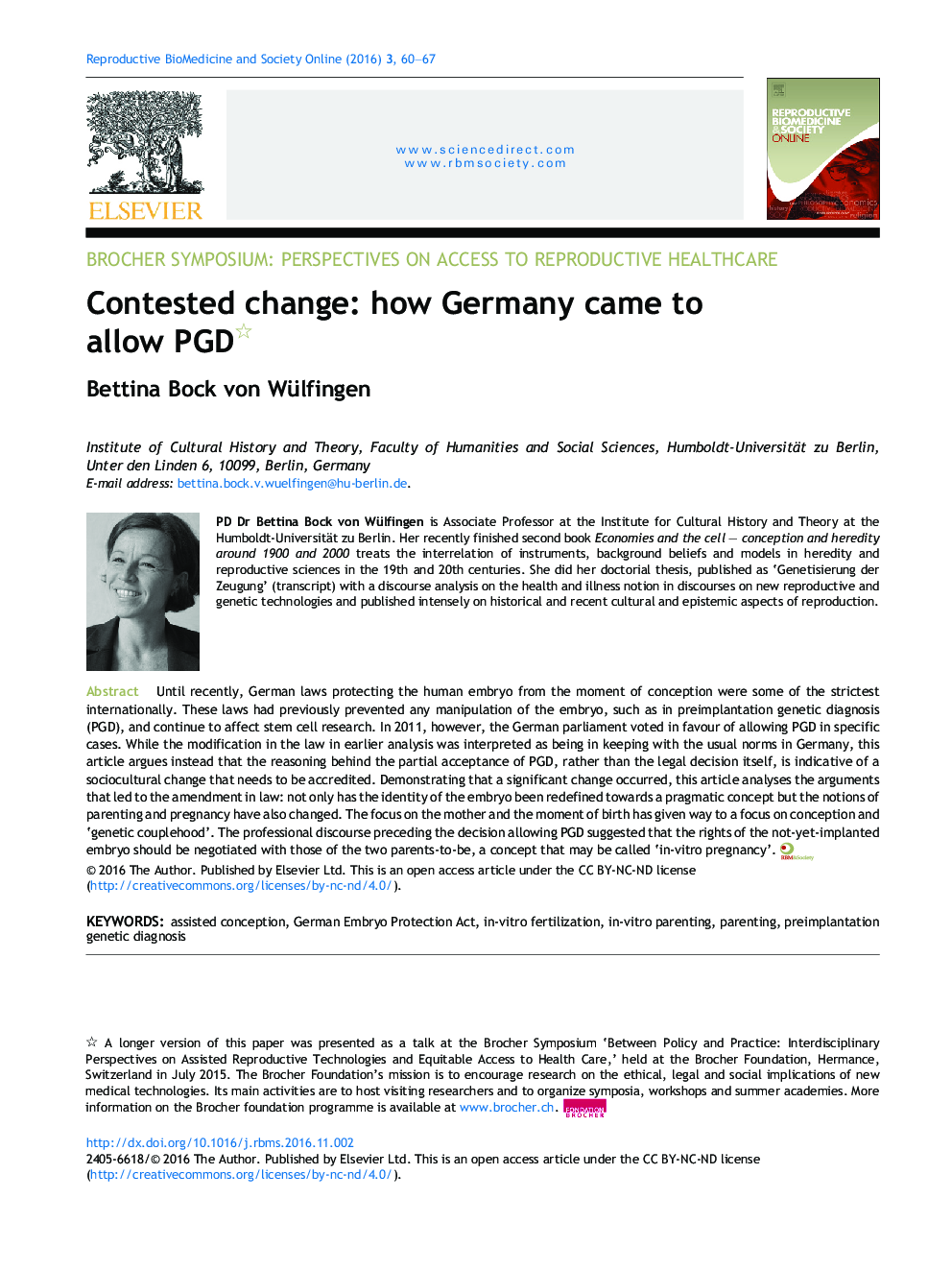| کد مقاله | کد نشریه | سال انتشار | مقاله انگلیسی | نسخه تمام متن |
|---|---|---|---|---|
| 5123130 | 1487224 | 2016 | 8 صفحه PDF | دانلود رایگان |

Until recently, German laws protecting the human embryo from the moment of conception were some of the strictest internationally. These laws had previously prevented any manipulation of the embryo, such as in preimplantation genetic diagnosis (PGD), and continue to affect stem cell research. In 2011, however, the German parliament voted in favour of allowing PGD in specific cases. While the modification in the law in earlier analysis was interpreted as being in keeping with the usual norms in Germany, this article argues instead that the reasoning behind the partial acceptance of PGD, rather than the legal decision itself, is indicative of a sociocultural change that needs to be accredited. Demonstrating that a significant change occurred, this article analyses the arguments that led to the amendment in law: not only has the identity of the embryo been redefined towards a pragmatic concept but the notions of parenting and pregnancy have also changed. The focus on the mother and the moment of birth has given way to a focus on conception and 'genetic couplehood'. The professional discourse preceding the decision allowing PGD suggested that the rights of the not-yet-implanted embryo should be negotiated with those of the two parents-to-be, a concept that may be called 'in-vitro pregnancy'.
Journal: Reproductive Biomedicine & Society Online - Volume 3, December 2016, Pages 60-67